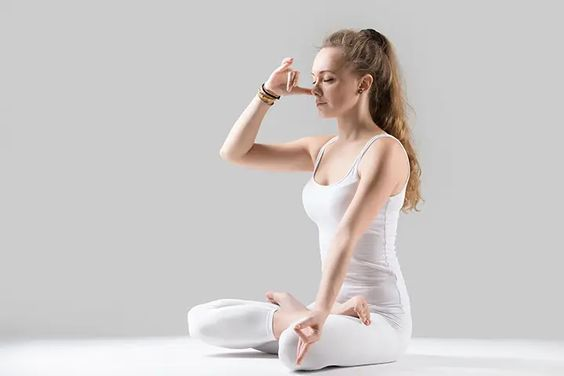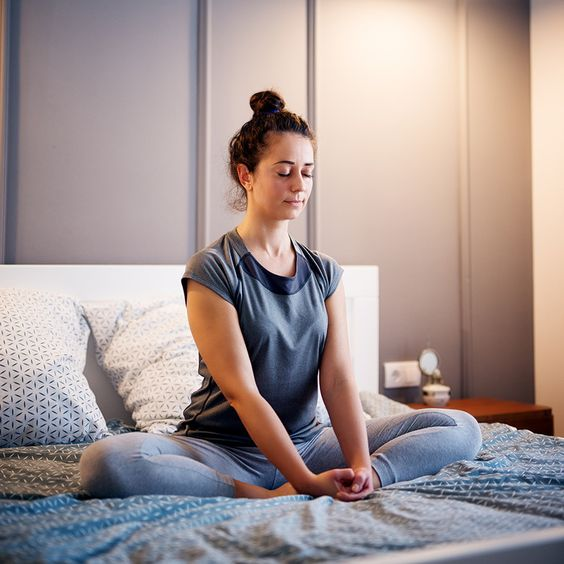Can Meditation Replace Sleep
Meditation and sleep are both essential for maintaining good health and well-being, but can meditation serve as a substitute for sleep? This comprehensive guide explores the relationship between meditation and sleep, the benefits of each, and how incorporating meditation into your routine can complement rather than replace sleep.
Understanding the Role of Sleep
Sleep is a fundamental physiological process essential for overall health. It involves multiple stages that contribute to physical, mental, and emotional well-being.
The Importance of Sleep
- Restoration: Sleep helps in physical repair and restoration of tissues and muscles.
- Cognitive Function: It supports cognitive processes such as memory consolidation, learning, and problem-solving.
- Emotional Regulation: Adequate sleep contributes to emotional stability and mood regulation.
- Immune Function: Sleep boosts the immune system, enhancing the body’s ability to fight infections and diseases.
Stages of Sleep
- NREM Sleep: Includes light sleep (Stage 1 and 2) and deep sleep (Stage 3), essential for physical restoration and energy replenishment.
- REM Sleep: Involves rapid eye movement and is crucial for cognitive functions such as dreaming and memory processing.
Understanding the Role of Meditation
Meditation is a mental practice aimed at achieving mental clarity, relaxation, and emotional balance. It involves focusing the mind and achieving a state of awareness.
Benefits of Meditation
- Stress Reduction: Meditation helps lower stress levels by promoting relaxation and reducing anxiety.
- Enhanced Focus: It improves concentration and mental clarity.
- Emotional Balance: Meditation fosters emotional stability and resilience.
- Improved Sleep Quality: Regular meditation can enhance sleep quality by calming the mind and reducing insomnia. Read more about: How to Use a Yoga Wheel
Types of Meditation
- Mindfulness Meditation: Focuses on being present in the moment and observing thoughts without judgment.
- Transcendental Meditation: Involves repeating a mantra to achieve a deep state of relaxation.
- Loving-Kindness Meditation: Emphasizes cultivating compassion and kindness towards oneself and others.
Can Meditation Replace Sleep?
While meditation offers numerous benefits, it cannot fully replace the need for sleep. Here’s why:
Differences Between Sleep and Meditation
- Physiological Functions: Sleep involves critical physiological processes like tissue repair and immune function that meditation cannot replicate.
- Restorative Processes: Sleep provides deep restorative effects on the body and brain that meditation cannot substitute.
- Sleep Stages: Meditation does not include the various sleep stages necessary for complete physical and mental restoration.
Meditation as a Complement to Sleep
Meditation can enhance the quality of sleep and provide benefits that complement sleep:
- Improved Sleep Onset: Meditation can help calm the mind, making it easier to fall asleep.
- Reduced Sleep Disruptions: It may reduce instances of waking up during the night by promoting relaxation.
- Enhanced Sleep Quality: Meditation can improve overall sleep quality by reducing stress and anxiety.

Incorporating Meditation into Your Routine
While meditation cannot replace sleep, incorporating it into your daily routine can improve your overall well-being and enhance sleep quality. Here’s how to do it effectively:
Establish a Regular Meditation Practice
- Set a Schedule: Dedicate a specific time each day for meditation, such as morning or evening.
- Start Small: Begin with short sessions (5-10 minutes) and gradually increase as you become more comfortable.
Create a Relaxing Environment
- Find a Quiet Space: Choose a quiet and comfortable place where you can meditate without interruptions.
- Use Props: Consider using cushions, blankets, or a chair to enhance comfort during meditation.
Combine Meditation with Good Sleep Hygiene
- Maintain a Consistent Sleep Schedule: Go to bed and wake up at the same time each day.
- Create a Sleep-Friendly Environment: Ensure your sleep environment is dark, cool, and quiet.
- Avoid Stimulants: Limit caffeine and screen time before bed to improve sleep quality.
Conclusion
While meditation offers significant benefits for mental and emotional well-being and can enhance the quality of sleep, it cannot replace the need for adequate sleep. Sleep is crucial for physical restoration, cognitive function, and overall health. Meditation can, however, serve as a valuable complement to sleep by reducing stress, improving relaxation, and enhancing sleep quality.
Incorporating regular meditation into your routine, along with maintaining good sleep hygiene, can lead to a more balanced and healthy lifestyle. By understanding the distinct roles of sleep and meditation and utilizing both effectively, you can achieve optimal well-being and better manage stress and sleep challenges.
Frequently Asked Questions (FAQs)
Q. Can meditation replace a full night’s sleep?
No, meditation cannot replace a full night’s sleep. Sleep is essential for various physiological processes that meditation alone cannot address.
Q. How can meditation improve my sleep quality?
Meditation can improve sleep quality by reducing stress and anxiety, calming the mind, and promoting relaxation, making it easier to fall asleep and stay asleep.
Q. How long should I meditate to see benefits for sleep?
Even short meditation sessions (5-10 minutes) can be beneficial. Regular practice over weeks or months can lead to more significant improvements in sleep quality.
Q. Can meditation help with insomnia?
Meditation can be a helpful tool for managing insomnia by promoting relaxation and reducing the mental chatter that often disrupts sleep.
Q. Is there a specific type of meditation that is best for improving sleep?
Mindfulness meditation and relaxation techniques are particularly effective for improving sleep quality. Experiment with different types to find what works best for you.

Mark Davis is a dedicated writer with a keen interest in topics like personal growth, technology, and travel. With a background in journalism, Mark brings a thoughtful and analytical approach to his writing, delivering content that is both insightful and engaging. He enjoys sharing practical tips and fresh perspectives that help readers navigate their daily lives. When he’s not crafting his next article, Mark loves exploring new destinations, reading, and experimenting with the latest gadgets.

